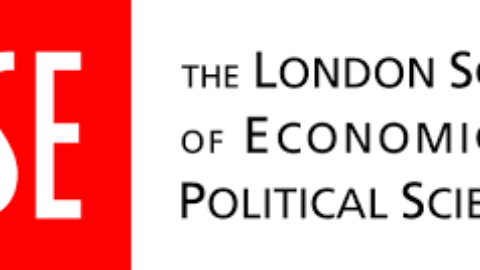There is something wrong with the sentence “our President is a fugitive”. It is grammatically and semantically correct (I hope). But it just doesn’t sound right, but it is sadly true especially if you live in Kenya or in Sudan, for example.
Kenya’s election descended into a bloody chaos in December 2008. The political question that Kenyans tried to answer then was whether Mwai Kibaki should continue in office as President or if Raila Odinga should instead take over. By the time the violence had ended – leaving some 1,200 people dead and 600,000 others displaced; it was still not decided who won the election. Following the unexemplary example set by Bob and Morgan in Zimbabwe, it was decided that Kibaki should continue as President and Odinga should come in as Prime Minister.
Investigation into the 2008 election violence revealed a pattern: it was as much a political conflict between supporters of the ruling Party of National Unity (PNU) and the opposition Orange Democratic Movement (ODM) on one hand, but it was also a conflict along ethnic lines – between the quasi-religious Mungiki and other gangs drawn from the Kikuyu, Embu and Kamba ethnic groups against the Luo/Kalenjin gangs. Later in the investigations by the International Criminal Court (ICC), the suspected culprits were named: Uhuru Kenyatta was indicted for a 5-count charge of crimes against humanity – comparatively, Joseph Kony has a total of 33 counts to answer for while the late Muammar Gaddafi had 2 counts to answer to. Besides Mr. Kenyatta, William Ruto the new Vice President of Kenya as well as Mohammed Ali, Henry Kosgey, Francis Muthaura (case now withdrawn) and Joshua Sang were indicted for their alleged roles in the 2008 violence.
I have heard a lot of concerns about the alleged undue emphasis of the ICC on Africa; it is true that this Wikipedia list of ICC indictees is wholly African. Perhaps there are other notorious persons (even Presidents) outside Africa who should be indicted and prosecuted too; but to be exact, a mere indictment could not turn a saint into a criminal; even if it comes from ‘The Haque’. All indictments could be summarized thus: “you are alleged to have committed crime(s) and we are eager to find out if it is true; could you come to clear your name?” One would have thought that indicted persons would be very eager to go to court to refute all allegations and come out acquitted, but it is not always so straightforward.
Uhuru Kenyatta and William Ruto were presented by their political party, the PNU as Presidential and Vice Presidential candidates (respectively) in the March 2013 Presidential Elections. On the road to power, they faced many obstacles including legal challenge based on their ICC indictment; there was also the formidable obstacle of Raila Odinga to contend with. In the end, Kenyans voted and Kenyatta/Ruto won; the opposition went to court but the court confirmed the victory of the Kenyatta/Ruto ticket.
In the build up to the polls, the words “ICC” and “Haque” featured consistently; so did “Skype”. Some Western governments warned of possible consequences should the indicted Kenyatta/Ruto win. That was as unfair as the African who were ‘ordering’ Americans to vote Obama only a few months ago. But the Kenyans paid them no heed, majority of them voted PNU anyways – I mean, it was only 50.03%, but it is win enough for them. Now that is democracy at its best; that a people are able to compare among 8 alternative candidates and choose their preferred and trusted leader. But shouldn’t it count for something that their preferred candidates are accused of crimes against humanity?
There is a huge conflict between the seemingly opposed demand of justice and that of democracy in Kenya. On the one hand, it is the duty of the Kenyan state to ensure that every time the law is broken, remedial measures (investigations, arrests, prosecution and punishments etc) are deployed. It is also the moral obligation of the State to fight impunity by ensuring that every person accused of committing a crime is granted a fair trial; this is done for the benefit of both the accused (to give them opportunity to clear their names or to make amends for offending society) and to victims of the accused (so they could find reprieve and continue to hold faith in the dictum of ‘crime and punishment’. Avoiding a return to the scary ‘State of Nature’ rests solely on this: that state punishes crime. On the other hand, it is also the obligation of the State to uphold the innocence of all persons (unless a court of law proves to the contrary). If a person is innocent therefore, then their franchise – the right to vote and to stand in elections could not be taken away from them. It is also the duty of the state to ensure that this right is not impeded upon.
But when the twin claims of justice and of democracy clash as was the case in Kenya, what should be done? Call this ‘The Great Kenyan Dilemma’.
I know that through expeditious and diligent application of the rule of law, it is possible for such conflict of claims to be avoided and averted in the first place. There is need to ensure that the first claim to emerge is equitably and expeditiously treated – hopefully, before a competing claim could be made. There are ways that The Great Kenyan Dilemma could have been altogether avoided – I mean, apart from the most obvious one which is to refrain from election violence ab initio. First, there is the principle of “complementarity” – the possibility for State parties of the ICC (such as Kenya) to initiate and punish offences that would otherwise be tried by the ICC. In fact the ICC is a court of last resort; it was conceived to take up such cases that local courts are unable or unwilling to decide upon. Through complimentarity, Kenyan courts could have tried the accused persons (using the same evidence that went before the ICC) and passed judgments; the convicted would automatically be barred from contesting in elections. A second way out could have been a speedy cooperation with the ICC. It has been over 4 years since the violence in Kenya occurred; 4 years could be long enough to rest a case if all parties cooperated with the ICC – well, Charles Taylor’s case dragged from 2007 to 2012 though. The recent legal challenge of the indictment on Uhuru Kenyatta ought to have come long before now. There are those who believe there was never conclusive evidence to convict most of the indictees; perhaps if they cooperated with the ICC earlier, they would be free men, not fugitives today.
The alleged focus of the ICC on Africa is hinged on the failure of this complimentarity principle. Courts in Africa should be strengthened to be able to take up cases no matter how complicated they may be and no matter how highly placed the alleged offenders may be. But this is not only in crimes against humanity – in Nigeria, persons accused of corruption are walking away acquitted or hardly being punished (and more recently, being pardoned by the state). James Ibori and a few others convicted abroad (mostly in the UK) for ‘Nigerian corruption’ might agree that the law is tougher outside Africa.
So how should the world deal with The Great Kenyan Dilemma; that the persons accused of horrendous crimes against humanity have been democratically elected to the highest office in the land?
First I think we must respect the Kenyans and the votes they have casted; it is still democratic even if your preferred candidate was not elected.
But how shall we deal with the ICC Case against Kenyatta, Ruto and the other accused? I think we should not relent in the pursuit of justice.
I should say that Kenyatta is not the first President to be indicted – there was Omar el Bashir of Sudan before him. One lesson we could learn from the Nigerian Coalition for the ICC (NCICC) is that with diligent mobilization, we could frustrate the accused who do not turn themselves in to justice. Thanks to Nigeria’s NCICC and other partners in Nigeria and in other places that Omar el Bashir has avoided; today el Bashir would sit in the comfort of the Sudanese State House and watch many citizens fly in and out at will. But he could not travel so easily, because he has a question to answer at The Haque.
It is true that enforcing a warrant of arrest against a serving head of state (usually the commander-in-chief of armed forces as well) presents a special challenge; but it is not insurmountable if there is the will to enforce it. Still, if an elected president were arrested and sent to stand trial; it may constitute a rape on democracy by invalidating the supreme choice of a demos.
How then could democracy and justice be reconciled in Kenya? I am aware that the case is making some progress. The case against Francis Muthaura has been dismissed while the court may be re-evaluating its evidence against the other accused; especially President Kenyatta and William Ruto who are being sworn in today, 9th April 2013. Maybe the ICC should try to enforce the arrests and begin trial with the other accused who do not hold immunity. The world could wait for the President and his Vice to complete their terms of office if their immunity were the challenge – but it isn’t; Kenyatta and the others have been indicted since 2011, 2 years before Kenyatta/Ruto attained immunity in Kenya.
Other African countries need not wait for the ICC decide on all injustices though; if we support our courts to work and equitably decide on all cases as they come up, then for want of cases, the ICC will wither and perhaps it would go extinct. If we fail to fix this inability of our courts to try cases as was the case n Kenya; then it could become fashionable to cash on an indictment to win an election. Then we might have more conflicts between democracy and justice. If such conflicts linger for too long, our societies may try to do away with either democracy or justice (or both) – and then it is a short slide to the State of Nature where life is nasty, brutish and short. God forbid bad thing!
By the way, there is $5 million on the table if you could help arrest Joseph Kony [alive please]! You ought to do this free for the sake of humanity [not for Kony 2012 though], for justice and for the atrocities (weighing 33 counts at the ICC) for which he stands accused. But if you need extra motivation, then $5 million should do.
____________
Nengak Daniel Gondyi is presently a post-graduate student in International Migration and Ethnic Relations at Malmö Högskola inSweden. He is also a Senior Programme Officer of the Abuja based Centre for Democracy and Development, CDD. He holds a Bachelors’ in International Studies from the Ahmadu Bello University. Read his full profile here.





